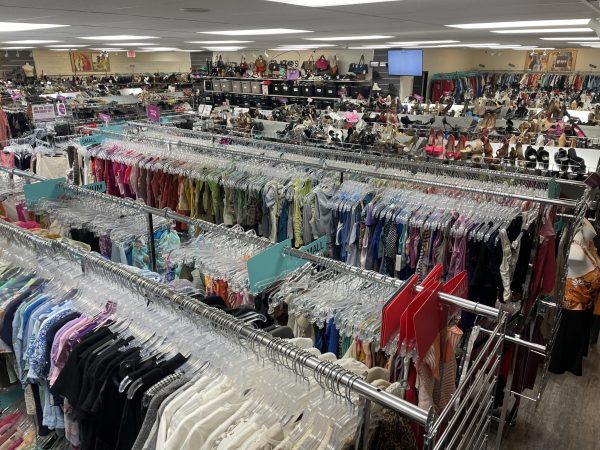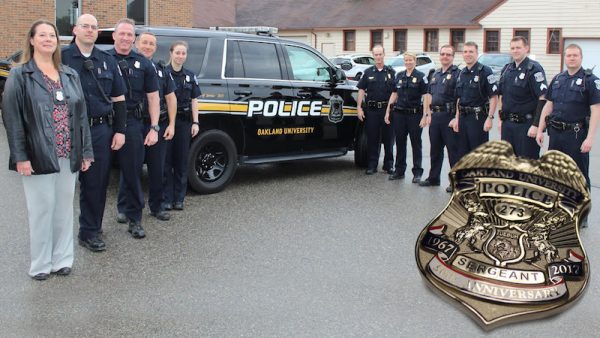Christian groups show their support at Pride parades across Michigan
Christian groups have tried to change the narrative of the relationship between the church and LGBTQIA+ community by showing up to Pride parades across the state this month to show their support with love and lots of hugs.
This June, people are coming together across the country to celebrate Pride Month. While many groups jump at the chance to show their support, one group has always seemed to be at odds with the LGBTQIA+ community. The news you hear regarding Christians and the LGBTQIA+ community often focuses on the negative — stories of small business owners denying service to customers on the basis of religious beliefs dominate the news’ attention, placing a negative filter over the relationship between Christians and the LGBTQIA+ community.
In spite of this, many Christians have made it their mission to let members of the LGBTQIA+ community know the horror stories that so often dominate the headlines do not reflect the Christian community as a whole. Christian communities have taken to Pride parades to show their support. Many even offer “pastor hugs” and “mom hugs.” They hope to show people support from roles where they may not have always felt supported.
Kyle Phillips, a student assistant in the Gender and Sexuality Center at Oakland University, shared their thoughts on the efforts of Christian organizations at Pride parades and how they believe it should be done properly.
“As a person who grew up in a very religious household, I find it endearing that some local pastors have open minds and are willing to give words of affirmation to those who would find comfort in it,” Phillips said via email.
While showing appreciation for the positive intentions of these organizations, Phillips was quick to point out one of the most important responsibilities of Christians who set out to show support.
“Having boundaries is key in a delicate situation like this,” they added.
Phillips believes it is important these organizations allow people to approach them on their own if they would appreciate the encouragement. They think Christians can support and encourage Pride parade participants if they approach it with an open mind and understand boundaries.
Sandi Waltman King was able to see how people reacted to this support firsthand when she went with members of her church to show support and offer “mom hugs” at the Ferndale and Motor City Pride parades.
“People are surprised and then delighted,” she said. “They hug hard. Lots of stories about how their parents don’t support them, which is horrifying.”
Although many people may expect the church to disagree with her actions, King’s situation is an example of why this is not always the case. She was delighted to have the full support and encouragement from her pastor and church community to do what she did and hopes her actions can help change people’s views and preconceived notions of her faith.
“It’s important as a human to support each other,” she said. “It’s more important when people know you also love Jesus, because churches have historically been terrible on this. They have been hurtful and hateful. It’s important that folks remember that it’s people who can be awful, not Jesus.”
King is not the only one who feels this way. In fact, the majority of religious Americans support laws that protect the LGBTQIA+ community from “discrimination in housing, public accommodations and the workplace,” according to the Public Religion Research Institute (PRRI).
The PRRI study found that over 75% of Americans who identify with New Age religions, Jews, Hindus, religiously unaffiliated Americans and Buddhists support these anti-discrimination laws. Additionally, over 65% of Mormons, Catholics, white mainline Protestants and Americans who identify with other religions also favor these laws.
Statistics point to the idea that the majority of members in religious communities favor non-discrimination in contrast to the stories of discrimination, such as the small business owner mentioned above.
King does not believe her actions rectify the church’s historical record on the issue. However, she does believe what she’s doing helps bridge together two communities that are often seen at odds in the media and shows people that it is not an entire faith, but rather, individuals who can be hateful. Most importantly, she sees the importance of supporting her fellow humans and doing anything she can to help them feel pride in who they are.
For more information on supporting the LGBTQIA+ community on campus, visit the Gender and Sexuality Center website.






